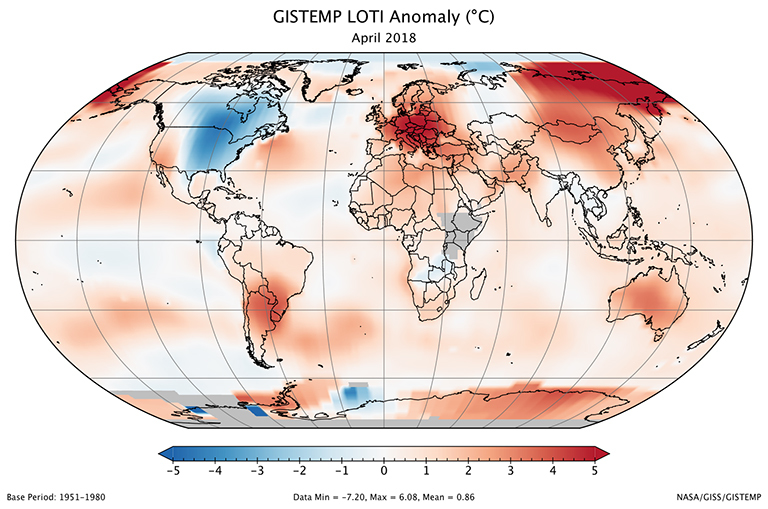April, Fools, and Climate Change
Legal Planet: Environmental Law and Policy 2019-04-05

April Fool’s jokes are a curious tradition, and I started to wonder where this custom came from. The origins of April Fool’s Day aren’t known with certainty, but there’s reason to connect it with blindness to change. In 1582, France switched from the Julian calendar to the Gregorian calendar. This meant that the year began on January 1 rather than the end of March. Those who hadn’t caught up with the changing time became targets for mockery. The word “fool” itself comes by way of French from the Latin word “follis,” meaning bellows or by extension windbag. (So “airhead” is a pretty accurate modern rendition.) I’ll leave you to think about how the windbag concept and ignorance of fundamental changes might apply to present-day circumstances and climate change.
Being fooled is the subject of popular sayings, such as “fool me once, shame on you; fool me twice, shame on me.” Many people have been taken in by climate change denial; whether we should blame them for continuing to believe these falsehoods over time is a different question. It is at least heartening to think about Abraham Lincoln’s famous dictum that “you can fool all the people some of the time and some of the people all the time, but you cannot fool all the people all the time.” The idea that truth will prevail in the long run is deeply embedded in post-Enlightenment culture, as in the metaphor of the truth winning out in the marketplace of ideas. We can only hope that this optimistic vision proves well-founded, that at some point the denialist ideologues and special interests will lose out to the cool, clear light of science.
The hallmark of science is the willingness to apply reality checks to our own ideas. As the brilliant physicist Richard Feynmann said, “The first principle is that you must not fool yourself and you are the easiest person to fool.” It’s for that reason that climate scientists have rigorously tested their theories against the climate record, constantly looking for signs that they may be missing something significant.
In contrast, you almost never see climate deniers putting their own theories to the test. When a Berkeley physicist did so, he was forced to admit that he had been wrong in rejecting climate models; he was immediately disowned and vilified by the remaining denialists. He described his findings in Conversion of a Climate Change Skeptic : “Our results show that the average temperature of the earth’s land has risen by two and a half degrees Fahrenheit over the past 250 years, including an increase of one and a half degrees over the most recent 50 years. Moreover, it appears likely that essentially all of this increase results from the human emission of greenhouse gases.”
In the end, whatever people may choose to believe or not believe, reality is unmoved. As Feynmann said, “Reality must take precedence over public relations, for Nature cannot be fooled.” Even King Canute actually understood that he couldn’t really halt the tides by royal edict. Donald Trump can keep on denying that climate change is serious or that it’s caused by humans, but the climate is changing nonetheless. The longer we close our eyes to reality, the less ability we will have to avoid disaster. Climate denial is the biggest and most dangerous April Fool’s Day joke of them all.
Oh and by the way, according NASA, the years 2016, 2017, and 2018 had the warmest Aprils on record.